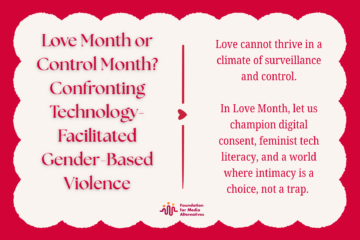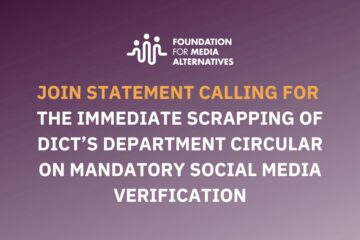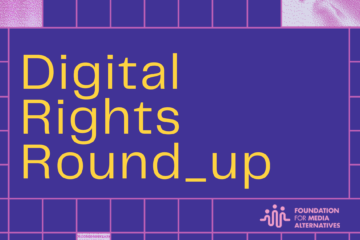Chained By Misery in their Sanctuary: The Poor Treatment of the LGBTQIA+ Individuals in the Household
The household should be a safe space, where people can be comfortable being their truest selves. In the case of most of the LGBTQIA+ community, it is just like any other spaces in which they conceal their identity to protect themselves against their homophobic parents. They already receive so much dehumanizing treatment from the society and church, making gender discrimination an inescapable problem for them.
Homophobia does not happen in just a snap. It is evident that religion—being an agent of socialization—reinforced such belief, and it is manifested in how they perceive and treat the LGBTQIA+ community. Before analyzing the forms of discrimination posed by the parents to their queer children, it is necessary to contextualize the Philippines’ cultural traits, especially its manner of being religious.
Defining Religiosity of the Philippines
The Philippines is a highly-religious country. Based on a national survey, about seventy-nine percent (79%) of Filipinos are Roman Catholic while the remaining rates are Islamism and branches of Christianity. With that, Catholicism is indeed an influential agency in how the state functions to the point that it also has a strong voice in Philippine politics. Even forwarding the rights of the LGBTQIA+ is already a great struggle in the Congress of the Philippines due to the church’s strong and persistent opposition.
Given that the Sexual Orientation, Gender Identity and Expression, and Sex Characteristics (SOGIESC) Equality Bill seeks protection against gender discrimination and violence, it is puzzling to witness how the Catholic community opposes granting protective measures against a highly-discriminated group. To comprehend this phenomenon, it is essential to discuss how the LGBQIA+ community is framed by religion.
How Does the Church Define the LGBTQIA+ Community?
Religious dogma has been seen as the reason as to why demarcation of the LGBTQIA+ community happens. It is an irony, to say the least, considering that the main rule in religion, especially in Catholicism is to love oneself and to extend that love to other people. Religions have negative attitudes toward homosexuality. They view it as an abomination and a violation of their religious values (Roggemanss et. al., 2015). Considering the nature of sin—which is inherently understood as a misuse of freedom of choice—viewing homosexuality as such is amplifying a connotation that being gay is a choice. Logically speaking, if gayness is a matter of choice, no one will choose to be gay due to the risk of the overwhelming demarcation from the society and even from your own family (READ: Rainbows were Meant to Shine).
Extending the argument from being more than just a personal choice, queerness is also seen as a disorder in Catholicism (Gregory, 2019). The cure that religious groups claim to such an illness is stronger relationship with God (Domingo & Escobido, 2024). Heterosexual celibacy was also seen as a redirecting force against homosexuality, which is a manifestation of how people understand queerness as a mere phase of one’s life (Amnesty International, 2022). What made matters worse is that such narratives were reinforced by pseudoscientific intervention to cure the believed disorder. The church’s spiritual counseling was complemented with unethical psychoanalytic methods in an effort to aid homosexuals from their perceived state of confusion.
How Does this Affect the Treatment Toward the LGBTQIA+ in the Household?
Various forms of physical violence are experienced by the LGBTQIA+ community due to the fact that many parents attempt to convert them into heterosexuals. There are children who undergo corporal punishment when they are caught having a demeanor that is not aligned with their sex (Masanda, 2017). In the research article of Buendia et. al. (2020), it narrated how a child was pushed on the stairway by his father, which resulted in him having multiple bruises. Another respondent also tells their story of how their father dragged them out of the house just to be beaten up and yelled at, reminding him how embarrassing it would be for them to continue being gay. This anecdotal evidence provided by queer individuals proves how ruthless parents can be toward their children. There are those that may say that it is coming from a place of concern since they are aware of the ridicule that the LGBTQIA+ community receives. There are two valid responses to address such a claim. Firstly, if they are truly aware of the marginalization that the queer children experience, they should have understood that they are already discriminated against at an overwhelming magnitude and it would have been better to shower them with love and acceptance, which society failed to provide them. Secondly, it is not always about genuine concern, but about protecting their ego at times. Considering that gayness is marked as an embarassment, parents try to avoid tainting their reputation by resorting to measures that would conceal hints of queerness of their child.
Moving forward, verbal violence may be a direct or indirect insult to LGBTQIA+. Direct verbal violence may come in the forms of hate speech, ridicule, and expressing dislike in an unnecessarily loud volume. Most of the queer community are consistently being scolded by their parents, expressing their disappointment of them being homosexuals (Masanda, 2017). It is saddening that most LGBTQIA+ are not recipients of parental love and acceptance because they are constantly reminded how much disappointment they bring to the family.
People should also be wary of symbolic violence that is committed against the queers because they are more discrete compared to verbal violence. This may easily be in the guise as a form of concern. For example, they would receive backhanded compliments such as, “you look good, but I feel like it is a wasted opportunity that you are gay because you cannot continue such genes” (Presto, 2020). It may also appear as how parents would obviously make non-verbal cues about how uncomfortable they are around their queer child such as being distant to them or making judgmental facial expressions when they observe non-heteronormative traits (Pinaga, 2023).
How Does this Affect the LGBTQIA+ in the Household?
Society has established that being gay is wrong. In turn, LGBTQIA+ individuals will have to shift their identity that conforms to heteronormative standards in the majority of the spaces available. Even in their safe space, they have to constantly be cautious because someone might witness them embracing their queerness. They may be their relatives, who could tell their parents regarding the way they behaved. As a result, the various forms of violence will be committed against them to rectify this perceived wrongful way of living. Living your life with fear constantly rising through your veins explains how anxiety could foster.
When it comes to depression, this develops due to constant parental rejection, hatred, and disacceptance (Domingo & Escobido, 2014). Linking back to the various forms of violence that the LGBTQIA+ experience from their parents, they have to experience that in school, in church, and even in the household. Being harmed and judged in every space available will definitely hamper one’s realization of their worth. Since gender discrimination seems inescapable, escape is one thing that they long for. Gregory (2019) identified two escape mechanism of the queer kids, which are social isolation and suicide. Given that they feel monitored in every space that they are in, the only safe space that they can really rely on is where it is only them that occupies it. However, since societal disacceptance and parental rejection are already implanted in their mind, even social isolation can no longer help them since these tormenting voices already haunt you, especially during your solitude. This explains why suicide also becomes an option because death becomes their only gateway from the hell that they experience in life (Gregory, 2019).
Not every queer community who underwent such trauma resorted to the actual conduct of suicide. Some had thoughts about pushing through with it, but there are those that just remained as suicidal ideation. The LGBTQIA+ in the research of Pinaga (2023) states that having a strong mind against discrimination aided them in conquering suicidal ideation. However, the strength of the mind varies from person to person. Note that despite every harmful matter that was mentioned, the Philippines still lack protective policies for the demarcated LGBTQIA+. However, that should not stop people from posing a decent and moralistic attitude to the queers. They are going through so much amid society’s persecution. They need more kindness since the hatred that they receive is way more than what they can handle.
Ronald Marion Angelo Aranas Obillo was born on September 23, 2002, in Guiuan, Eastern Samar. He completed his junior high school education at St. Mary’s Academy of Guiuan and his senior high school education at Far Eastern University High School. Currently, he is pursuing a Bachelor of Arts in Political Science at the University of the Philippines Tacloban College. Committed to advancing socio-civic initiatives that empower various community groups, he is an active member of UP Halcyon, where he has served as the Public Relations Officer and as the project head for the notable Citywide Youth Leadership Training. Driven by a passion for public speaking, Mr. Obillo is also a member of the UP Tacloban Debate Society, one of the most prestigious debate societies in Eastern Visayas. He has represented UP Tacloban in various debate competitions, winning awards such as being the overall best speaker of Cebu Inter-school Debating Association: Novice Cup 2023 and the grand champion of the Visayas Novice Debate Cup. As an advocate for LGBTQIA+ rights, he firmly believes that individuals should be recognized and respected despite their sexual orientation and gender identity.



0 Comments